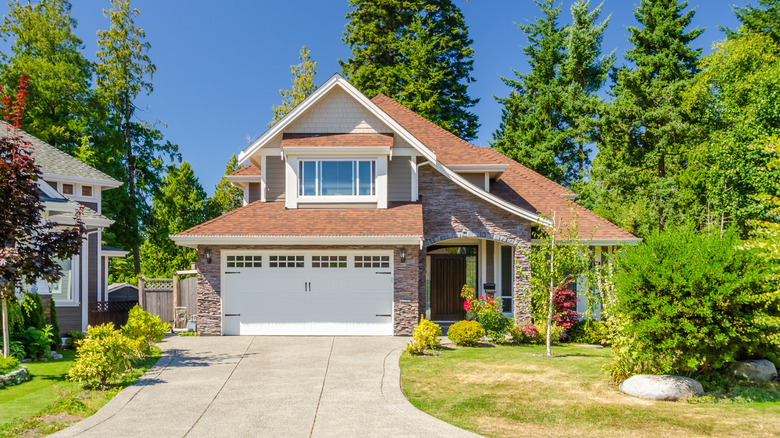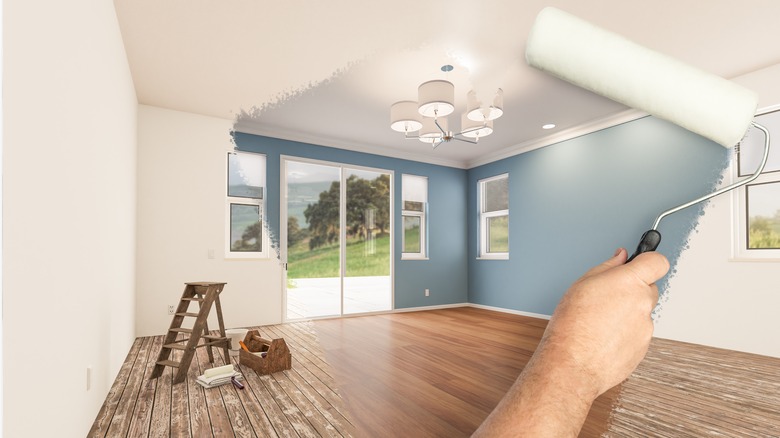What You Need To Know About Leasehold Properties
You may have heard of leasehold properties, which are fairly common in the United Kingdom (though some states in the U.S. offer them as well). Realtor says a leasehold property is a form of housing between owning a home and renting an apartment. When you rent a leasehold property, you own the house for the amount of time you and the owner agree upon, but not the land it sits on. Once your lease is up, the property returns to the owner's hands. A typical rental property contract lasts about six months to a year, whereas a leasehold property agreement can last between 40 to 120 years.
Another key difference between purchasing a home and renting a leasehold property is the down payment. A financial institution uses this down payment as collateral upon granting the lessee a loan, HG explains. Once the owner receives the deposit, the lease begins. Furthermore, a leasehold rental agreement is no different than your average lease; however, the leaseholder pays their monthly rent and is subject to eviction if they miss a payment. If you're interested in obtaining a leasehold property, here are a few other things you should know.
You've got the chance to renovate
One of the major perks of a leasehold property is the possibility to make home improvements. With a typical rental property, such as an apartment, tenants often aren't granted the right to renovate their space. Some landlords do allow the lessee to paint, but RentPrep recommends asking your landlord for permission before grabbing the paintbrush. On the other hand, rental agreements typically allow for larger improvements when you own a leasehold property, but you may need to get the owner's permission first. Once they've approved your renovation plans, you'll need to acquire a License to Alter (LTA) that officially documents the agreement.
If you're unsure what overhaul the owner approves, check your leasing agreement, which will have all that information outlined. You can always ask the owner for clarification if the answer is still unclear. As eager as you may be to get started on renovations, ensure everything has been okayed by the owner (the last thing you want to do is breach your contract). Keep in mind these renovations may come with an additional fee.
You can extend your lease
Another feature a leasehold property offers is the opportunity to extend your lease; however, you only qualify for the extension if you've lived in the property for a minimum of two years and there aren't more than 80 years remaining on your lease, Housing says. The sooner you decide you want to extend the lease, the less costly it will be on your end. Additionally, the process isn't as cut-and-dry as you might think. In fact, it can take anywhere from three to 12 months to complete the process.
Before you begin the process of extending your lease, Lexology highly recommends hiring legal counsel to assist you by clarifying legal jargon you may not fully grasp. Next, you'll need to send an official letter stating your desire to extend your lease, along with the amount of money you're willing to pay to do so. If the owner agrees, they'll request a down payment (typically 10%), and once the agreement is finalized, you're free to continue living in your home.


